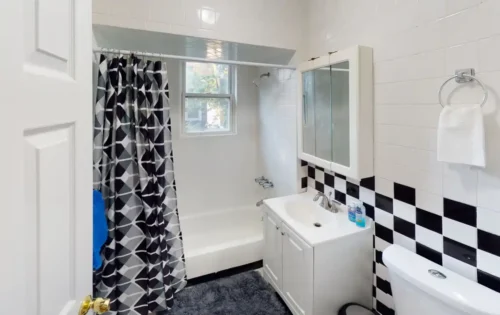How is Recovery Housing Regulated?

Advantages of sober living homes include peer support, accountability, structure, independence, supervision, relapse prevention, life skills training, career coaching, 12-Step involvement, and more. If you’re worried about being distracted by the opposite sex, consider staying at mash certified sober homes a gender-specific facility. If you answered “yes” to five or more prompts, it may be time to consider a recovery housing program. Alternatively, you may enjoy the on-the-go peer support available through Reframe, which offers a 24/7 anonymous forum, 1-on-1 coaching, daily Zoom check-ins, and challenges to complete alongside your peers.

Getting Started With A Sober Living Facility
Minnesota can be an excellent place to open a sober living center (also known as a recovery residence) for operators who are just starting out in the “halfway house” space. Even if you aren’t the best networker or businessperson, those with good intentions who take time to ensure that every resident has an opportunity to recover in a safe environment, will be recognized. Before opening a sober living home, it’s important to thoroughly research the market to determine the best location and pricing for your home. Figure out what other facilities offer and try to find a point of differentiation – how your facility meets a unique and unmet need in the area. Accreditation for sober homes ensures that the facility meets certain health standards and adheres to an established code of ethics. In this blog, we’ll provide more details to help you understand what sober living homes are, how and why they are accredited, and what to look for in a sober living home.

What are the Resident Rules and Regulations of Sober Living Homes That Differentiate them from halfway houses?
- For instance, Fountain Valley’s decision to regulate sober living homes reflects a growing trend among municipalities to address community concerns through local ordinances.
- Additionally, enhancing transparency through public registries of certified sober living homes and regular inspections can help ensure compliance and build community trust.
- Sober living homes often serve as a transitional step for individuals who have completed an addiction treatment program, such as inpatient rehabilitation or outpatient counseling.
The Fair Housing Amendments Act of 1988 is instrumental in prohibiting discrimination against individuals with disabilities in housing transactions, which includes those in recovery from addiction. At Sober Living App, we love helping sober living operators get their homes started the right way — the first time. At Footprints to Recovery, over 70% of our patients choose to stay in sober living while receiving treatment or after completing treatment with us. As you’re searching for the environment that’s right for you, ask each potential recovery home what their rules are. While you may want to live on your own right away, you might not be ready to manage total freedom at first. Sober living offers a balance between living in the real world and receiving some structure and monitoring.
Individuals Completing Addiction Treatment

The interplay between local autonomy and statewide consistency remains pivotal in regulating California’s sober living homes. Local regulations, such as those in Costa Mesa, have taken a firm stance by prohibiting sex offenders, violent felons, and drug dealers from operating sober living homes. These regulations also mandate 24/7 supervision of residents to maintain a secure and supportive setting. A recent bill in Arizona, SB1655, mandates that behavioral health entities and sober living homes must file necessary incorporation documents within ten business days before commencing operations. This regulation underscores the state’s commitment to reforming sober living home operations following a crisis that highlighted the need for stricter oversight. Legal precedents, such as the case of One Love Housing, LLC v. City of Anoka, MN, affirm that sober living homes fall under the protection of the FHA.

In contrast, Arizona’s SB1361 seeks to enhance licensing, oversight, and penalties for violations, with proposed fines increasing from $500 to $1,000 and defining ‘sober living home’ in state law. This bill reflects bipartisan efforts to balance support for recovery and community safety. State regulations for sober living homes are diverse and tailored to address different communities’ unique challenges and needs. These laws will determine whether an existing property such as a residential home can be repurposed. If you are an individual or a group who would like to start a sober living home in your community, Eudaimonia Recovery Homes is here to help. We successfully own and operate several sober living homes in Texas and Colorado that are adequately serving the needs of men and women who are recovering from addiction.
